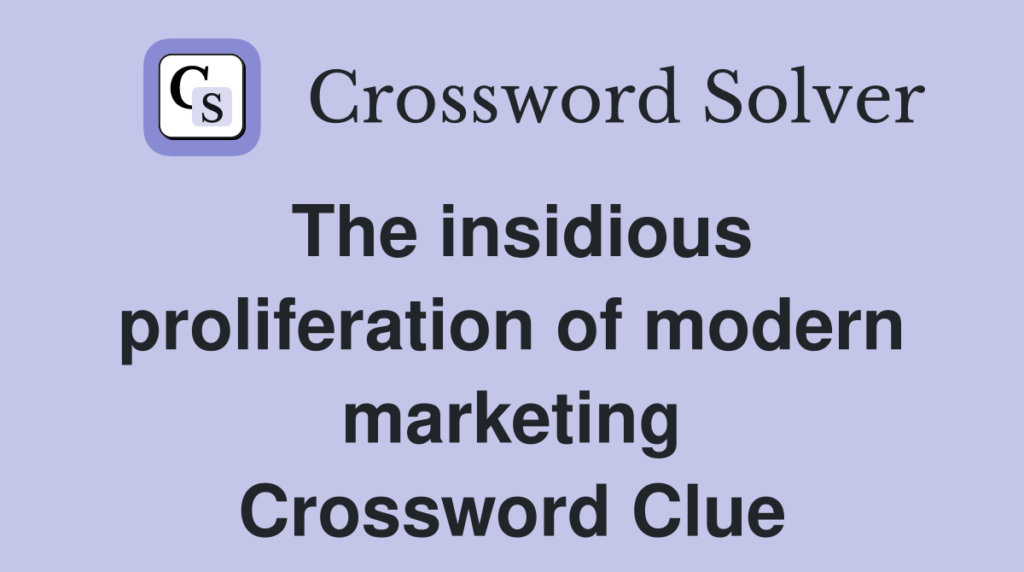A family that cherished simplicity resided in a small town where technology was still largely unimportant. There were hardly any advertisements in the newspapers or on billboards, and life was quiet. But as time passed, the outer world started to alter quickly. With the introduction of the internet came a wave of innovation and a change in how companies interacted with their customers. Although this shift started off small, it quickly grew to be a constant influence on all facets of daily life.
John, a small retailer, can still clearly recall his initial experience with internet marketing. It was a banner ad for a product that was customized based on his past searches on a website he frequently visited. He clicked on it out of curiosity, not realizing that this marked the start of a new age. The advertisements evolved over time, using algorithms and data to target specific people with astonishing accuracy. Personalized adverts started to follow John around websites and social media platforms, which initially seemed like a fresh experience but quickly became annoying.
Today’s modern marketing is a sophisticated, all-encompassing system that is featured on almost every website and elsewhere on the internet. Marketing methods have evolved into more cunning and potent tactics, ranging from influencer alliances to predictive analytics and targeted social media campaigns. This essay explores the spread of contemporary marketing, looking at its methods, effects, and the thin line that separates legitimate advertising from privacy infringement.

The Development of Marketing Strategies
Simple print ads and TV commercials have long since given way to more sophisticated forms of marketing. The marketing tactics of today are frequently automated, highly targeted, and data-driven. Due to these developments, a wide range of creative and somewhat intrusive marketing strategies have proliferated.
Marketing Driven by Data
The core of contemporary marketing is data. Businesses gather a tonne of information about the demographics, behaviors, and interests of their customers in order to develop highly customized marketing strategies. Businesses that employ data-driven marketing have a six-fold higher chance of being successful year over year than those that don’t, per a Forbes analysis.
Marketing Statistics Based on Data
| Metric | Value |
|---|---|
| Increased Profitability | 6 times more likely |
| Improved Customer Engagement | 57% higher effectiveness |
| Enhanced Personalization | 80% of consumers prefer personalized offers |
Businesses can personalize their messaging to each customer with data-driven marketing, which boosts conversion rates. But this degree of customisation also brings up issues with data security and privacy.
Promotion via Social Media
Social media networks are become indispensable resources for contemporary marketers. Social media sites like Facebook, Instagram, and Twitter have billions of users globally, making them the most accessible and engaging. Social media marketing includes targeting people with paid advertisements based on their interests and habits, producing content for certain audiences, and utilizing algorithms to increase visibility.
The increasing significance of social media as a marketing medium is indicated by Statista’s projection that global spending on social media advertising would reach $153 billion by 2024.
Influencer Promotion
Influencer marketing has become a potent tactic for connecting with target audiences. Influencers with sizable social media followings have the power to influence their followers’ purchases by endorsing and promoting products. Influencer Marketing Hub projects that by 2022, the industry will have grown to a value of $15 billion.
Growth in Influencer Marketing
| Year | Industry Value (in billion USD) |
|---|---|
| 2016 | 1.7 |
| 2018 | 4.6 |
| 2020 | 9.7 |
| 2022 | 15.0 |
Influencer marketing carries some dangers even though it can be quite successful. The legitimacy of influencer efforts can be damaged by problems like phony followers, a lack of transparency, and moral doubts over authenticity.
The Effects of Contemporary Marketing
Modern marketing strategies are widely used, and this has a big impact on customers, businesses, and society at large.
Companies
Modern marketing has many advantages for firms. It makes it possible to target audiences more precisely, increase engagement rates, and measure campaign impact more accurately. By concentrating on tactics that provide the greatest results, businesses can maximize their marketing expenditures. Furthermore, the capacity to collect and evaluate customer data enables companies to remain competitive and make wise judgments.
Shoppers
Receiving more individualized and relevant content is advantageous to consumers. Customized suggestions can improve the purchasing experience and assist customers in finding goods that satisfy their requirements. However, ad weariness and privacy issues may result from the frequent onslaught of advertisements and the invasive nature of some marketing strategies. A HubSpot survey indicates that 91% of customers think that advertisements are more bothersome now than they were two years ago.
The Community
The effects of contemporary marketing on society are complex and multifaceted. One way that marketing stimulates the economy is by encouraging consumer spending and helping businesses. However, the ubiquitous aspect of marketing can also fuel the spread of false information, consumerism, and social anxiety. There are constant discussions in society about the moral ramifications of data privacy, manipulation, and the use of persuasive technologies.
Moral Aspects in Contemporary Marketing
Modern marketing is sneaky, which brings up a number of ethical issues that society and marketers need to address. Transparency, data manipulation, and privacy are important concerns.
Privacy of Data
The utilization and gathering of customer data is essential to contemporary marketing. But there are serious privacy issues with this method. Unknowingly providing their info, users are frequently the focus of targeted advertisements and comprehensive profiles. The Cambridge Analytica controversy brought attention to the possible exploitation of personal data, which prompted requests for more stringent restrictions and closer examination.
Disguise
Contemporary marketing strategies can be quite convincing, sometimes going too far in the direction of manipulation. Subtle changes in consumer behavior can be achieved through strategies including behavioral nudges, retargeting, and tailored adverts. These strategies may work well for companies, but they may also compromise consumer autonomy and create moral conundrums.
Openness
Being transparent is essential to preserving customer confidence. It is imperative for marketers to maintain transparency regarding their data collection and utilization practices, influencer partnerships, and campaign goals. Mistrust and retaliation from customers might result from a lack of transparency. A recent Edelman survey found that 67 percent of consumers think that brands are utilizing their personal information without their consent, which emphasizes the need for increased openness.
Transparency and Trust by Customers
| Metric | Value |
|---|---|
| Consumers concerned about data use | 67% |
| Importance of transparency | 85% |
| Willingness to share data with transparent brands | 73% |
Modern Marketing’s Future
There is no doubt that current marketing will change even more as technology advances. The marketing environment is about to change due to the emergence of technologies like blockchain, augmented reality, and artificial intelligence.
The use of artificial intelligence
Artificial Intelligence (AI) holds great promise to transform marketing by facilitating advanced data analysis, customized content, and automated decision-making. AI-driven chatbots, for instance, can improve the customer experience by offering prompt assistance and suggestions. By 2021, 80% of developing technologies will have AI underpinnings, according to Gartner, demonstrating the growing significance of AI in marketing.
Virtual and Mixed Reality
AR creates fresh possibilities for engaging and immersive marketing campaigns. Virtual try-ons, interactive product demos, and captivating commercials may all be produced by brands using augmented reality. As a result of its increasing uptake, Statista projects that the AR advertising industry will reach $8 billion by 2024.
Blockchain
Blockchain technology can improve marketing’s security and transparency. It guarantees that data transfers are safe and verifiable while giving customers more control over their data. Because blockchain offers a decentralized, transparent record of ad transactions, it can also aid in the fight against ad fraud. The blockchain in advertising market is anticipated to expand at a compound annual growth rate (CAGR) of 32% between 2019 and 2024, according to a report by Market Research Future.
New Marketing Technologies
| Technology | Potential Impact |
|---|---|
| Artificial Intelligence | Enhanced personalization and automation |
| Augmented Reality | Interactive and immersive experiences |
| Blockchain | Increased transparency and security |
FAQs Regarding the Spread of Contemporary Marketing
What does contemporary marketing entail?
Using data-driven, highly focused techniques, modern marketing advertises goods and services via a variety of digital platforms.
How has marketing changed in the modern era?
Traditional marketing strategies like TV and print advertisements have given way to digital tactics like influencer collaborations, social media marketing, and customized ads in today’s modern marketing landscape.
What advantages does contemporary marketing offer companies?
With modern marketing, companies may target particular demographics, track the success of their campaigns, and maximize their marketing expenditures for increased returns.
What moral issues surround contemporary marketing?
A lack of transparency in marketing methods, data privacy, and consumer behavior manipulation are examples of ethical concerns.
What effect does current marketing have on customers?
Although consumers get more tailored material, they still deal with problems like ad fatigue and privacy concerns.
What role will modern marketing play in the future?
New technologies like blockchain, artificial intelligence, and augmented reality are predicted to further revolutionize current marketing by strengthening security and transparency, fostering immersive experiences, and boosting customisation.
Conclusion
Modern marketing’s sneaky spread is a complicated phenomenon with wide-ranging effects. Modern marketing strategies have many advantages for both companies and customers, but they also bring up privacy and ethical dilemmas. The marketing landscape will surely change as technology advances, bringing with it both new opportunities and problems. In order to succeed in this environment, marketers, customers, and legislators must prioritize openness, moral behavior, and respect for customer privacy.


